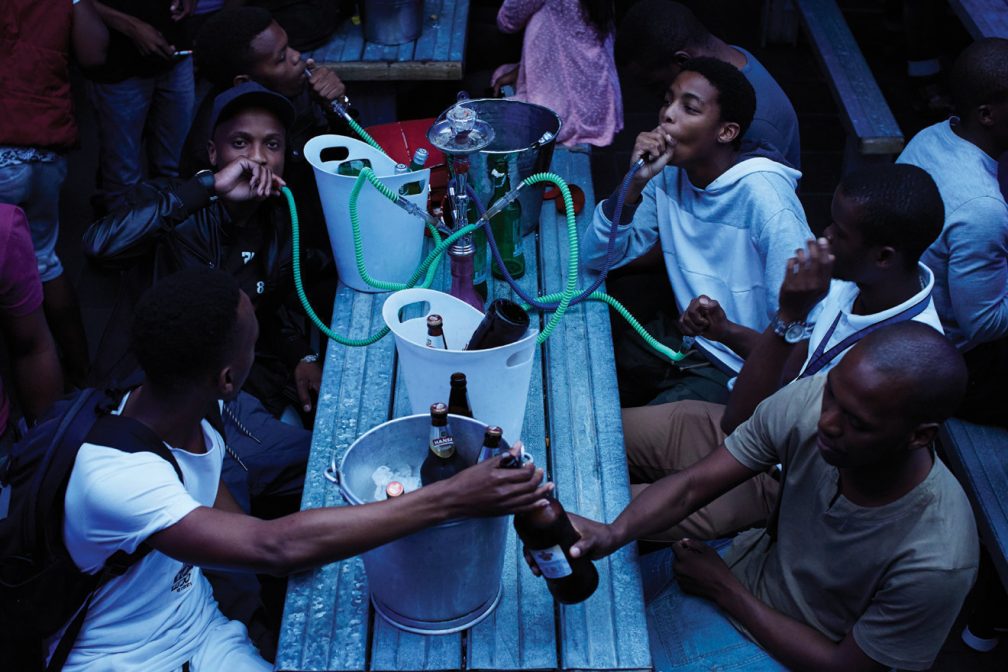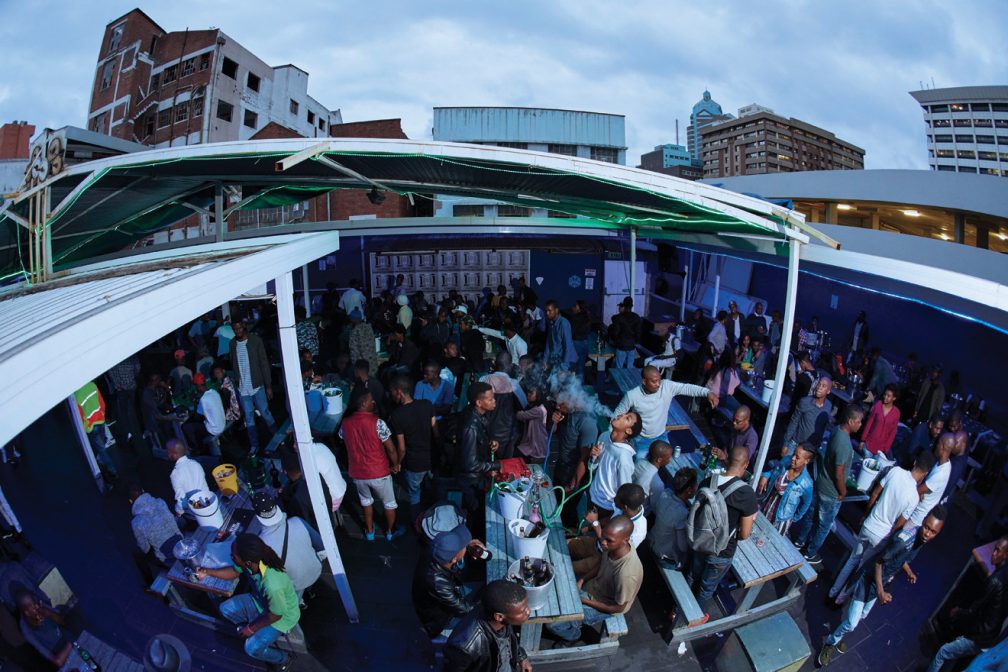 Scene reports
Scene reports
Gqom is the explosive South African sound bursting into Europe
Durban’s Club 101 is the epicenter of a distinctly township take on house music
Since the early days of gqom, inner-city minibus drivers have played the music over their massive sound systems as a way of attracting customers to their vehicles, earning it the label ‘taxi music’.
“The taxis that travel around the city playing gqom are like tiny blood cells, and the roads are like veins,” Gift says, expanding on his heartbeat analogy. “Some people in Durban don’t even know what gqom is, but it’s always there in the background, flowing around the city.”
Over the last five years overseas interest in gqom has increased, with tracks produced in Durban’s townships being played by international DJs including the owner of the Hyperdub, label, Kode9, who’s likened the sound to “being suspended over the gravitational field of a black hole, and lovin’ it.”
In May 2015 gqom pioneers the Rude Boyz released an EP on London-based label Goon Club Allstars. In January 2016 a full-length gqom compilation came out on Gqom Oh!, a label founded by the Italian DJ Nan Kole. But even with this increasing international attention, raw township gqom remains a relatively underground sound in its home city. Although some elements have made their way into commercial music produced in Durban, it remains shunned by radio stations and the wider music industry.
Outside of the makeshift, mostly unlicensed clubs that exist in Durban’s townships, only two venues in the city centre are willing to play hardcore gqom music: The Havana Club, and Club 101.
“The music has certain associations and brings with it certain behaviours – that’s why they don’t like to play it too much in other clubs,” Ashoo Rampersad, the owner of Club 101, told us earlier that day. As we roam the utilitarian corridors and worn stairways of the converted warehouse, DJs, bar staff, and bouncers frequently approach Ashoo with questions. After passing through an office we emerge on a quiet balcony that overlooks Durban’s gleaming International Conference Centre.
“Even here, in the centre of the city, crime and violence are huge problems,” Ashoo says. “Durban is a tough city. Young people here live in the moment.
“Other club owners feel like gqom music doesn’t fit in with the culture of their club. It comes from poor townships, and is played on public transport used by the poor. It’s associated with drugs and violence. It is not associated with wealth or glamour.”
The rise of Durban’s unique gqom sound has been connected to a number of factors including the urbanisation of rural Zulu communities, the isolation experienced in less developed townships, growing political disillusionment among young black people, and changes in the city’s drug culture.
Gift says Durban has seen an explosion in ecstasy consumption over the last five years. “We call it ‘nkoh’,” he says.
“It wasn’t really part of black culture in the townships until recently. Now it’s everywhere, and it’s changed the way people listen to music.”
According to Gift and his friends, the other drugs of choice are codeine cough syrup and, amongst a minority, a highly addictive cocktail of chemicals known locally as ‘wunga’. One of its key ingredients is believed to be the antiretroviral drug Efavirenz, which produces psychedelic effects when smoked and is widely distributed by the South African government as part of a massive programme to combat AIDS.
“The guys that use that stuff,” says Julie, another 101 regular; “they’re the people walking around like zombies. When you look in their eyes it seems like they’ve got no souls.”
As the night wears on the music gets darker. Warping, gasping beats float over the dancefloor. Gunshot samples ring out across the rooftop, and savage drum bombardments tear at the speaker cones.
Gift and his friends immerse themselves in the sounds, winding their hips and shuffling their feet in the bhenga style. Other dancers strut, kicking their legs and slapping their thighs - performing a newer, more aggressive dance known as ‘skhotheni’.



